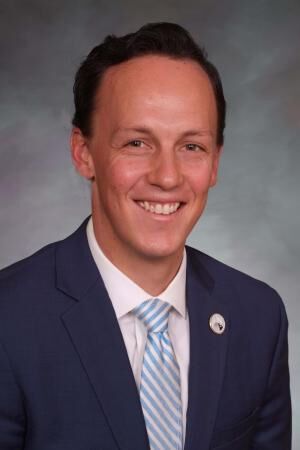Libertarian candidate barred by SOS; Amendment 24 pushed to save Colorado from uncontrolled growth | A LOOK BACK

Thirty-Five Years Ago This Week: After Colorado Secretary of State Natalie Meyer ruled Robin Heid was ineligible to run as the Libertarian candidate for governor, the party selected a new candidate, David Aitken.
Heid wasn’t happy. “I have been denied access to the ballot by a fake judge, and the Colorado Supreme Court is sitting on its ass until it’s too late to do anything,” Heid said.
The Libertarian Party was unsuccessful in petitioning the Colorado courts to declare Colorado Revised Statute 1-4-801(1)(i), which requires candidates be registered with the nominating party for at least one year, unconstitutional.
“It is unconstitutional for the state to regulate a party’s membership,” Heid said. “Judge Coyt has no authority according to the Colorado Constitution (6-5-3b).”
Heid said that the next stop was the Colorado Supreme Court, but the state’s highest court refused to hear the case.
“Natalie Meyer is employing the Mussolini theory of politics, which states ‘give me the power to nominate and you can vote for anyone you chose.’”
The new Libertarian candidate, David Aitken, first became active in the party in 1986 when he ran for state representative in House District 6 against Democrat Jerry Kopel. Aitken announced that he would not accept money from any Political Action Committee, and the theme of his campaign would be, “Every human being has a right to choose.”
Twenty Five Years Ago: Amendment 24, which was designed to give local voters the power to guide development and growth into certain areas to reduce or eliminate sprawl, was billed by the real estate and business communities as a fail-safe way to wreck the Colorado economy.
At a discussion at the City Club in Denver, nature photographer John Fielder, an active proponent of Amendment 24, argued that the opposite was true.
“Because of uncontrolled growth, we are losing the quality of life that brought us here,” Fielder said. “We are about to cook the goose that laid the golden egg.”
Fielder argued that the state of Oregon had much tighter growth control rules than those proposed by Amendment 24, yet it was still the second-fastest-growing state in the nation.
Former Colorado Democratic chairman and attorney Howard Gelt firmly agreed with Fielder but told the audience that he didn’t think a constitutional amendment was the right path forward.
“The question is not whether we should reform the system,” Gelt said, “but how. I speak against the proposal not because I’m opposed to it but because I’m opposed to the constitutional amendment process.”
Gelt told the City Club attendees that if the amendment passed and were later proven to be flawed, voters wouldn’t be able to change it until the general election of 2004. He was also deeply opposed to the trend toward legislation through constitutional amendments.
“Instead of having the Legislature decide on the best plan, we’re going to have issues decided by who has the most money to finance amendment initiatives,” said Gelt.
While Gelt shared Fielder’s frustration at the lack of initiative taken by the Republican-controlled legislature, he argued that the largely voluntary process cities and counties use “will and has slowed down growth, without a constitutional amendment.”
Fielder argued that under present growth control systems, master plans issued by cities and counties were unenforceable and largely ignored. Amendment 24 pertained only to certain cities and counties, above 10,000 in population, Fielder said.
“Any growth plans that city or county officials developed must be approved by a vote of the people in that jurisdiction,” Fielder said. “This gives people a way to decide what development goes where. This will save money on utilities and other infrastructure.”
Rachael Wright is the author of several novels, including The Twins of Strathnaver, with degrees in Political Science and History from Colorado Mesa University, and is a contributing columnist to Colorado Politics, the Colorado Springs Gazette, and the Denver Gazette.













